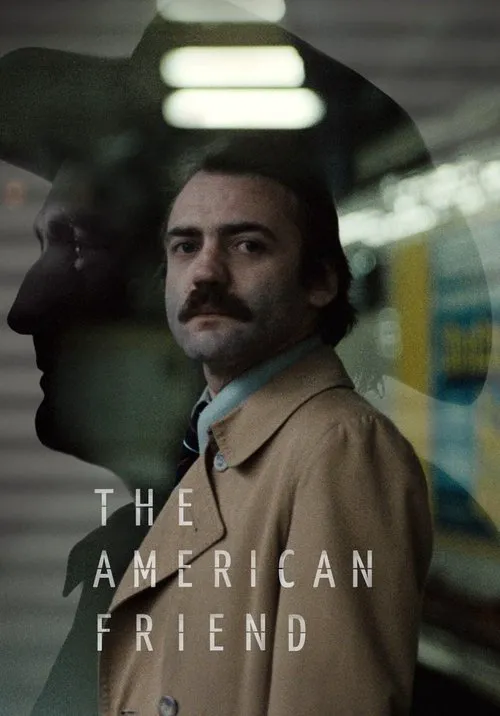The American Friend

Plot
"The American Friend" is a 1977 German drama film directed by Wim Wenders. The movie is a gripping tale of deception, exploitation, and the darker side of human nature. The story revolves around Tom Ripley, a charismatic and cunning American, played by Dennis Hopper, who makes a living by selling forged artworks. The film begins with Ripley's encounter with Jonathan Zimmerman, a quiet and introspective picture framer, played by Bruno Ganz, at an auction in Hamburg. Zimmerman is slighted by Ripley, who appears to be a sophisticated and cultured individual, but in reality, he is a con artist. Ripley is dismissive of Zimmerman's genuine expertise and knowledge of art, marking the beginning of a complex relationship between the two men. As the story unfolds, Ripley's path crosses with that of Raoul Minot, a ruthless and manipulative gangster, played by Nicholas Ray. Minot approaches Ripley with a proposition, asking him to take care of a rival, but Ripley is not interested in getting his hands dirty. Instead, he suggests Jonathan Zimmerman, citing his innocence and naivety as an asset. This is where the true deception begins. Ripley and Minot exploit Zimmerman's terminal illness, using it as leverage to coerce him into becoming a hitman. Zimmerman's desperation and lack of options make him vulnerable to their manipulation, and he eventually agrees to carry out the job. The dynamic between Ripley and Zimmerman is one of exploitation and control, with Ripley using his charm and cunning to manipulate the situation to his advantage. As the story progresses, the film delves deeper into the themes of identity, deception, and the blurred lines between reality and illusion. Zimmerman's journey from being a picture framer to becoming a hitman is a testament to the fragility of the human psyche and the ease with which people can be manipulated. Ripley, on the other hand, is a master manipulator, using his charm and charisma to get what he wants. The film features stunning cinematography, capturing the gritty and industrial landscape of Hamburg. The black-and-white visuals add to the film's moody and introspective atmosphere, underscoring the themes of despair and disillusionment. The performances from the cast are also noteworthy, particularly Dennis Hopper and Bruno Ganz, who bring depth and nuance to their respective characters. One of the standout aspects of "The American Friend" is its exploration of the relationships between its characters. The dynamic between Ripley and Zimmerman is complex and multifaceted, with Ripley's manipulation of Zimmerman serving as a catalyst for the story's events. The film also touches on the theme of loneliness, with Zimmerman's isolated existence as a picture framer serving as a contrast to the more sociable and charming persona of Ripley. As the story reaches its climax, the film takes a surprising turn, with the truth about Zimmermann's past and the true nature of his involvement with Ripley emerging. The revelation raises questions about the nature of identity and the complexity of human relationships. In the end, "The American Friend" is a thought-provoking and haunting exploration of the darker aspects of human nature, highlighting the ease with which people can be exploited and manipulated. The film's ending is also a commentary on the fragility of human relationships and the impossibility of true connection. Zimmermann's isolation is a testament to the fragility of human relationships, and the film's final shot of Zimmermann sitting alone in a hotel room serves as a poignant reminder of the devastating consequences of Ripley's manipulation. Overall, "The American Friend" is a gripping and thought-provoking drama that explores the complexities of human nature. The film's themes of deception, exploitation, and the blurred lines between reality and illusion are underscored by stunning cinematography and strong performances from the cast.
Reviews
Recommendations




